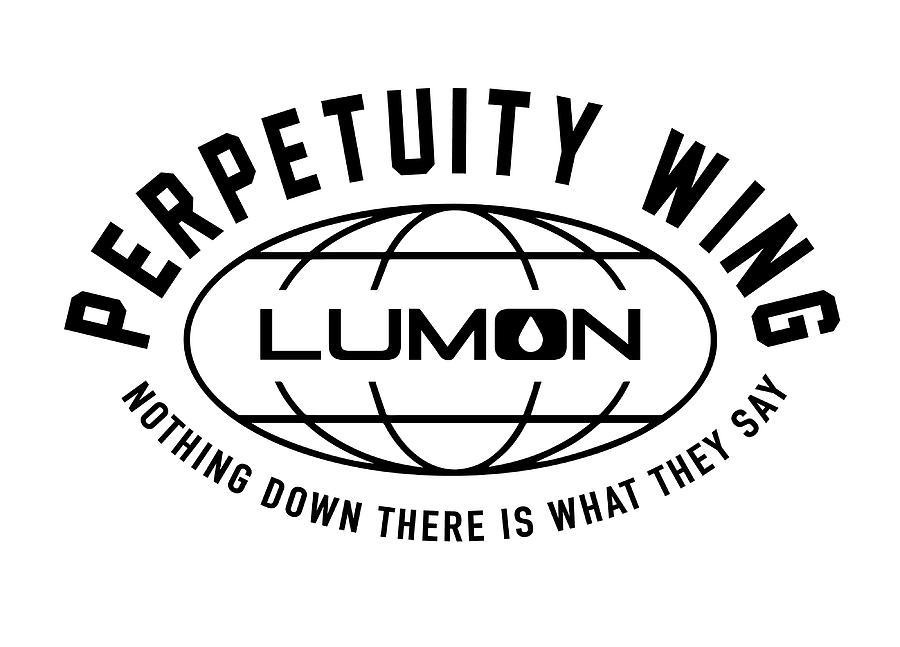Ben Stiller's Severance: A Comparison Of Lumon Industries And Apple

Table of Contents
The chilling world of Lumon Industries in Ben Stiller's Severance has sparked conversations about the potential dystopian future of work, and its unsettling similarities to tech giants like Apple are hard to ignore. This article will delve into a comparison of Lumon Industries and Apple, examining their practices concerning employee treatment, technology, and corporate culture, ultimately questioning the ethical implications of unchecked technological advancement and corporate power.
<h2>The Cult of Secrecy: Lumon vs. Apple's Confidentiality</h2>
Lumon Industries’ extreme secrecy is a defining feature of the show, impacting every aspect of its employees' lives. This contrasts with Apple's culture of confidentiality, primarily focused on protecting intellectual property. However, both companies highlight the potentially oppressive nature of extreme secrecy in the workplace.
- Lumon's invasive severance procedure and memory partitioning: The show depicts a radical separation of an employee's "innie" (work self) and "outie" (personal self), resulting in a complete lack of transparency between work and personal life. This extreme measure ensures Lumon Industries secrecy is absolute.
- Apple's strict NDAs and security protocols for employees: Apple employs stringent Non-Disclosure Agreements (NDAs) and robust security measures to protect its trade secrets and product launches. While not as extreme as Lumon's procedure, violating Apple's confidentiality rules carries significant consequences.
- Comparison of intensity and consequences: While the consequences of violating confidentiality at Apple might involve legal action or termination, Lumon's violation results in psychological manipulation and potentially irreparable damage to the employee's psyche. This difference in scale highlights the spectrum of secrecy within the corporate world and its potential impact on employee well-being. The comparison of Lumon Industries secrecy with Apple's illustrates the range of corporate secrecy practices.
<h2>Technological Control: Lumon's Outie/Innie Divide and Apple's Ecosystem</h2>
Lumon Industries leverages technology to exert unparalleled control over its employees. This control, facilitated by the severance procedure and constant surveillance, raises questions about employee autonomy and data privacy. Apple, while not using a "severance" procedure, employs its extensive ecosystem for data collection and analysis.
- Lumon's innie/outie divide and its implications for employee autonomy: The complete separation of work and personal life leaves "innies" vulnerable to manipulation and exploitation within the Lumon environment, effectively removing any sense of individual autonomy.
- Apple's extensive data collection and its use in personalized advertising and product development: Apple collects vast amounts of user data through its various devices and services. While this data is used for product improvements and targeted advertising, it raises concerns about data privacy and the potential for misuse.
- Potential for technology to create similar levels of control: The comparison between Lumon technology and Apple's illustrates how the seemingly benign data collection practices of tech companies could evolve into more intrusive forms of technological control in the future, mirroring the dystopian reality of Lumon Industries. The increasing sophistication of technology and data analytics presents a growing concern about employee surveillance and data privacy.
<h2>Work-Life Balance (or Lack Thereof): The Extreme in Severance and the Grind at Apple</h2>
Severance showcases an extreme lack of work-life balance; Lumon's severance procedure ensures complete separation—but at what cost? Apple, often cited for its demanding work culture, also faces scrutiny regarding its employees' well-being.
- Lumon's complete separation of work and personal life through severance: This radical approach eliminates any bleed-over between the two, but the ethical cost of such complete detachment is a central theme of the show.
- Anecdotal evidence and reports of long hours and high pressure at Apple: Numerous reports detail the intense work culture at Apple, characterized by long hours, high pressure, and a relentless pursuit of innovation, potentially leading to employee burnout.
- Ethical implications of demanding work environments: The comparison between Lumon's work environment and Apple's highlights the ethical considerations involved in prioritizing productivity over employee well-being. A balance needs to be struck between demanding innovation and ensuring a healthy work-life balance to avoid employee burnout and maintain ethical practices.
<h2>Corporate Culture and Employee Loyalty: A Comparison of Lumon and Apple</h2>
Lumon Industries cultivates a cultish corporate culture, manipulating its employees into unwavering loyalty. Apple, while not resorting to similar tactics, enjoys a reputation for strong employee loyalty and a highly selective hiring process.
- Lumon's manipulative methods of fostering employee loyalty and dedication: Lumon utilizes psychological manipulation and isolation to create a sense of belonging and dependence among its employees, ensuring unquestioning loyalty.
- Apple's highly selective hiring process and its focus on creating a strong team identity: Apple's rigorous recruitment process creates a strong team identity among employees who often feel a sense of pride and commitment to the company's mission.
- Potential downsides of overly strong corporate cultures: Both Lumon's and Apple's cultures, while fostering loyalty, highlight the potential downsides of overly strong corporate identities, potentially stifling dissent and individual expression. The creation of strong company loyalty should not come at the expense of individual employee well-being and critical thinking.
<h2>Conclusion: Severance's Warning: Examining the Parallels Between Lumon Industries and Apple</h2>
Ben Stiller's Severance offers a chilling glimpse into a potential future of work dominated by technological control and extreme corporate power. While the dystopian world of Lumon Industries is fictional, its unsettling parallels to aspects of modern corporate culture, particularly within tech giants like Apple, warrant careful consideration. The similarities revealed lie in the intense focus on secrecy, the use of technology to monitor and control employees, and the cultivation of strong, potentially stifling, corporate cultures. The differences, however, lie primarily in the scale and methods of control. Lumon's methods are extreme and manipulative while Apple’s practices, though concerning, remain within the bounds of current legal and ethical frameworks (though debate around data privacy and employee well-being continues). Ben Stiller's Severance serves as a chilling reminder to critically examine the potential downsides of unchecked technological advancement and corporate power. Consider the parallels between Lumon Industries and other tech giants like Apple and engage in thoughtful discussions about creating healthier and more ethical work environments. [Link to article on workplace ethics]

Featured Posts
-
 Reddit Service Restored After Outage Users Can Now Access The Platform
May 17, 2025
Reddit Service Restored After Outage Users Can Now Access The Platform
May 17, 2025 -
 Phoi Canh Cong Vien Dien Anh Thu Thiem Hinh Anh Va Ban Ve De Xuat
May 17, 2025
Phoi Canh Cong Vien Dien Anh Thu Thiem Hinh Anh Va Ban Ve De Xuat
May 17, 2025 -
 New Business Hot Spots A Nationwide Map And Analysis
May 17, 2025
New Business Hot Spots A Nationwide Map And Analysis
May 17, 2025 -
 Prematurely Cancelled Tv Shows 10 You Should Know
May 17, 2025
Prematurely Cancelled Tv Shows 10 You Should Know
May 17, 2025 -
 Analiza E Bisedes Telefonike Midis Putin Dhe Presidentit Te Emirateve Te Bashkuara Arabe
May 17, 2025
Analiza E Bisedes Telefonike Midis Putin Dhe Presidentit Te Emirateve Te Bashkuara Arabe
May 17, 2025
